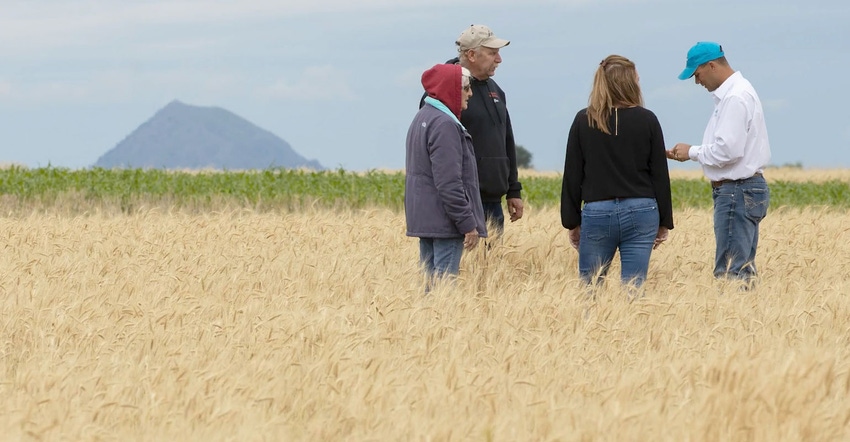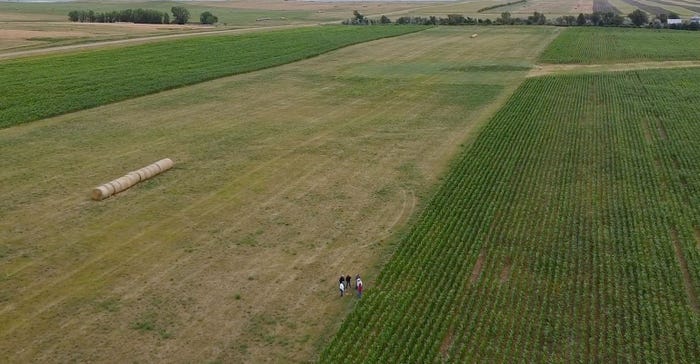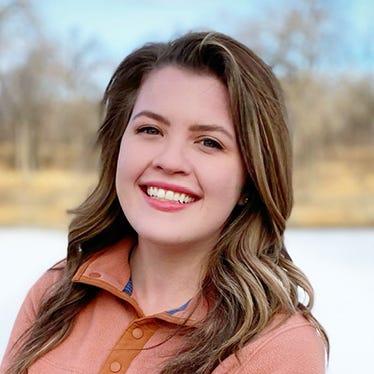
April Stoner’s dad had always made the decisions on their Meade County family farm. But when her mother passed away, she ended up in charge of the farm trust. When her father died in 2012, all the decisions he had always made became hers to make.
The most important of those decisions was whether to continue the relationship both her grandfather and father had with tenant Chris Grubl since 1999. “Bud and his son had leased this place to some other folks before I got involved,” Grubl says. “The weeds had pretty much taken it over. You get a lot of wind here, and there was a lot of soil moving, too. Instead of going in there and tilling the ground and getting rid of the residue the worms need, we've gone to strictly no-till and cover crops,” he says.
“Chris already had a lease with Dad, and it looked like it was going to work, so we just continued the lease,” Stoner says. “We share expenses and income, and every five years we renew the lease.”
Utilizing cover crops
“Chris initiated the conversation on cover crops,” Stoner says. “It made no sense to me until we started talking about it. I said, ‘Well, what's a cover crop? What is that?’
“Then I started doing a little research — you know, the internet's a very handy thing to have! I asked him what he was planting for cover crops, and he started talking turnips and radishes. I thought this is really weird, and then he explained to me what the cover crop roots were doing for the soil.”
Stoner would learn that it takes a mixture of multiple species including grasses — such as sorghum, corn and oats, as well as broadleaves like turnips, radishes, peas and flax — to build organic matter and improve soil health on her farm.

“We drove around and looked at things, and having a little background in gardening, I could understand a lot of that,” Stoner says. “He’d been really good at taking care of the land, and I've trusted Chris all these years. There's a lot of trust involved in a lease, especially when you don't actually live on the place. You trust him because he’s a fair man. I thought well, I guess I'm going to have to entrust him to the land and try something new — so that's what we did.”
“We're using radishes and all kinds of different species in our cover crop, feeding the worms, and it's pretty interesting to see all that happen,” Grubl says. “There’s a healing process the land has to go through. The soil's getting built back up. We're building topsoil again, and we're getting rid of the obnoxious weeds. We're grazing most everything now, and that seems to be helping, too. We really like the fact that we can integrate the livestock and the crops together.”
Grubl says the success of a tenant-landowner relationship comes down to the bottom line. “It has to be profitable for both parties or it just doesn't work,” he says. But he also knows many landowners have an important connection to the land. “It was a pretty good relationship with Bud, then with his son, and now with his daughter and granddaughters. It's interesting to work with these landowners. It’s not just land to them,” he says. “This used to be their home. They grew up here, and they want to see it continue to do well. We're pretty happy with all that's going on.”
About the Author(s)
You May Also Like






